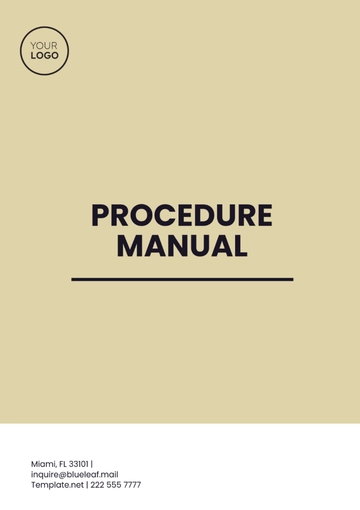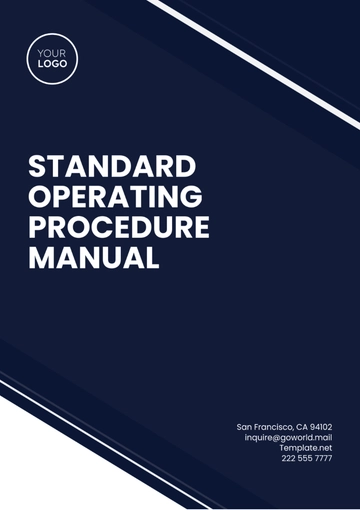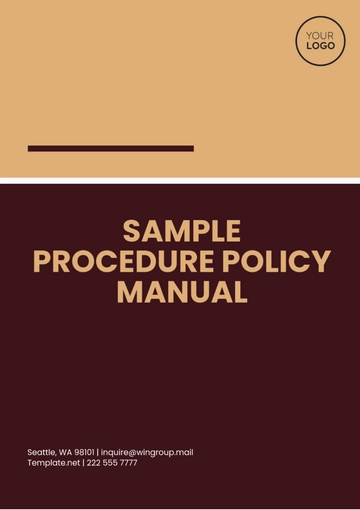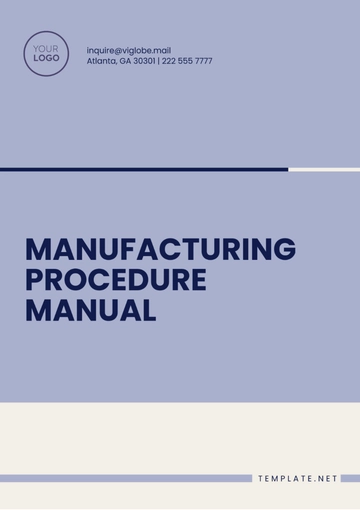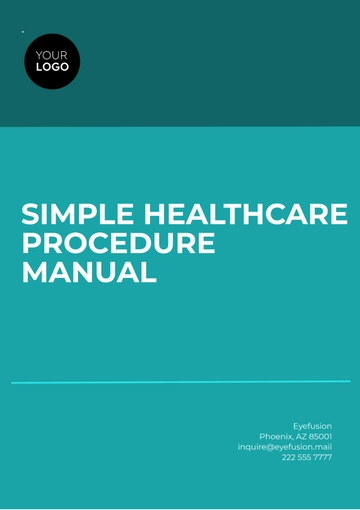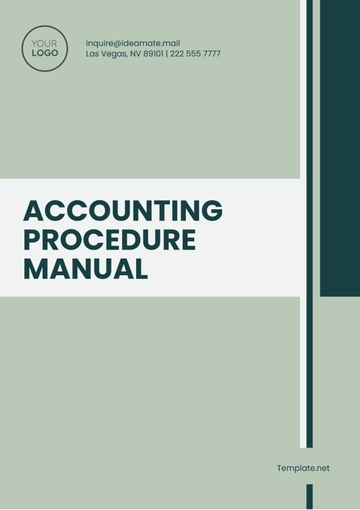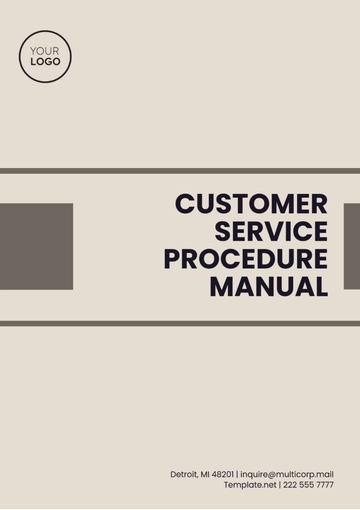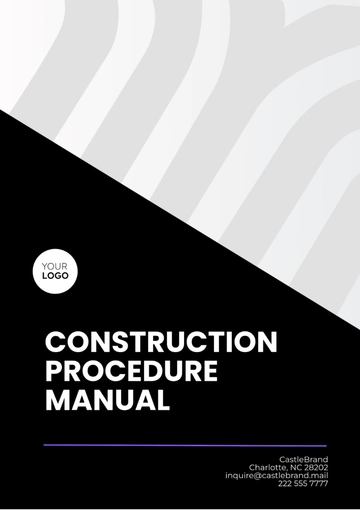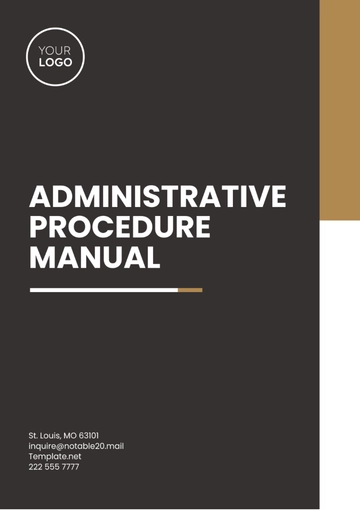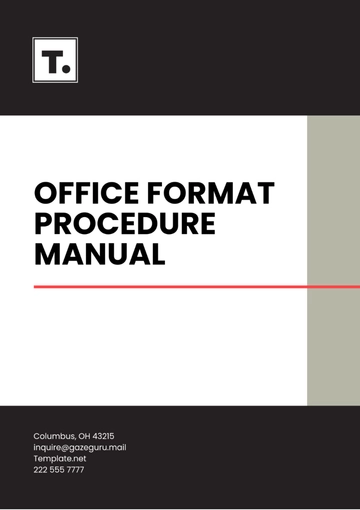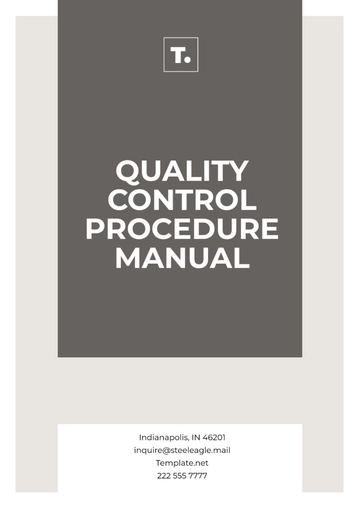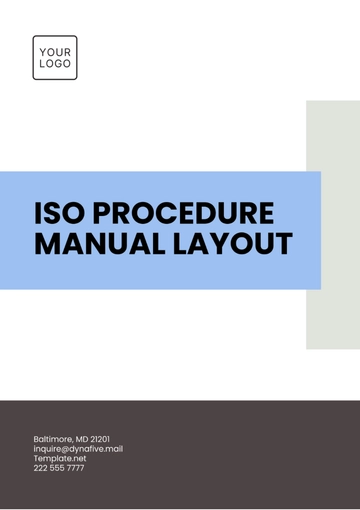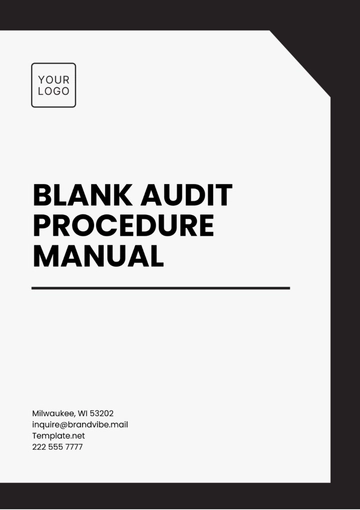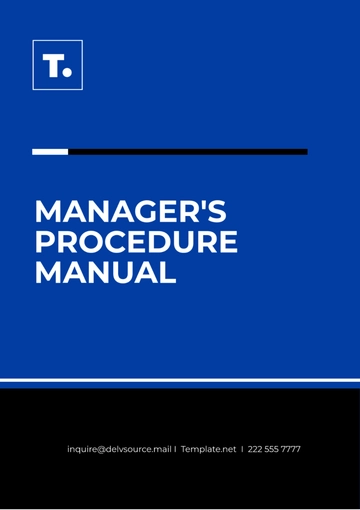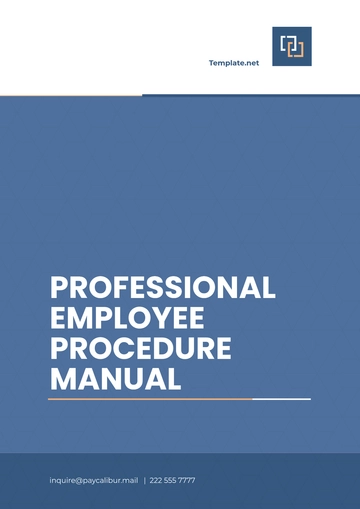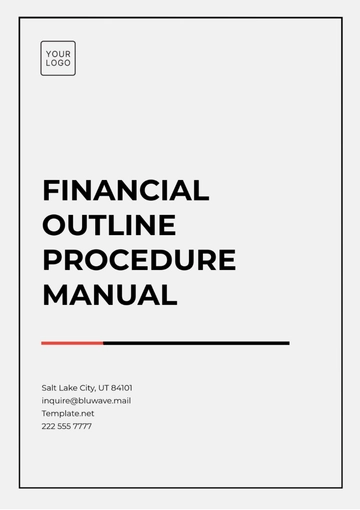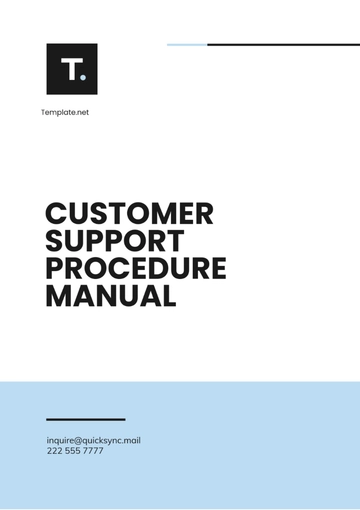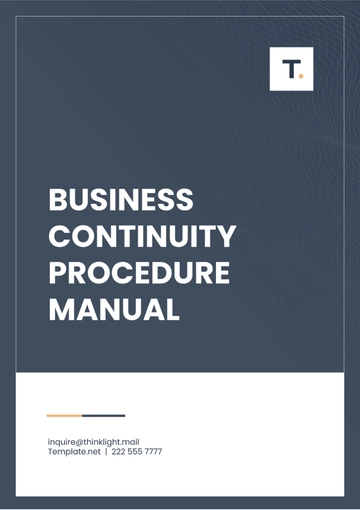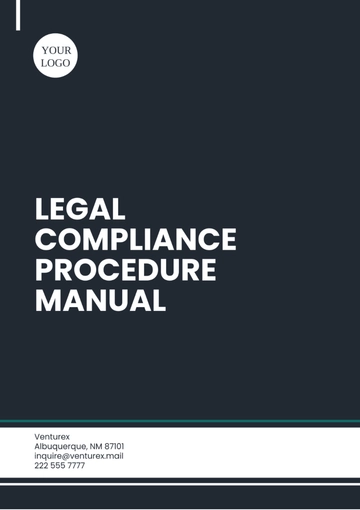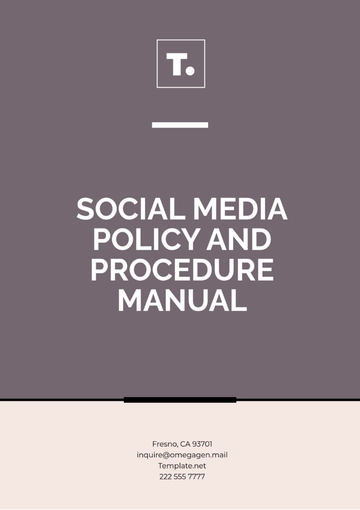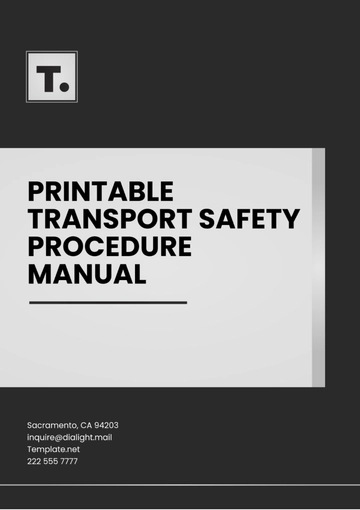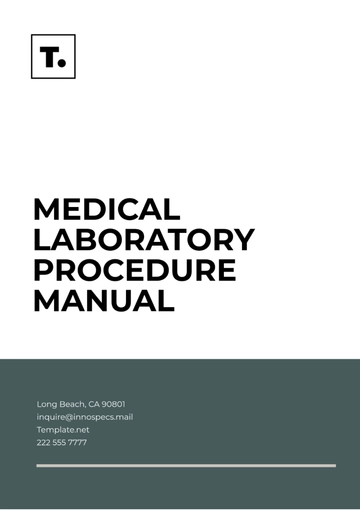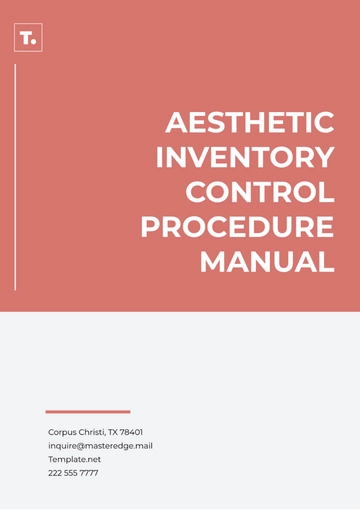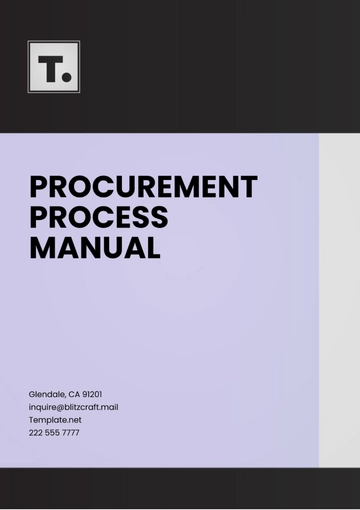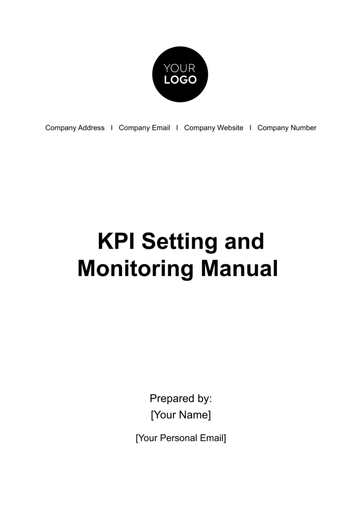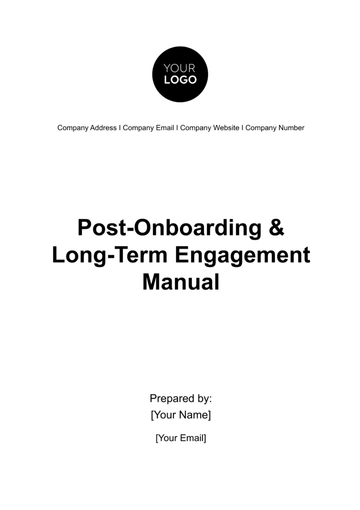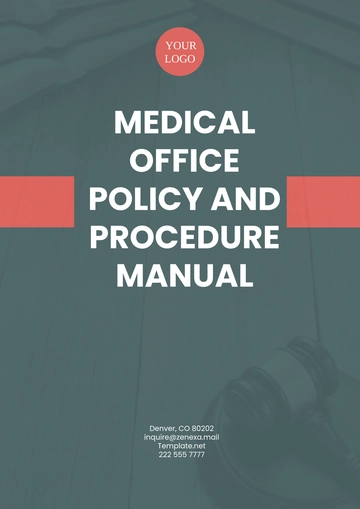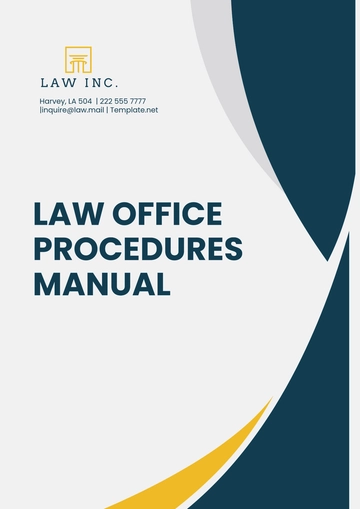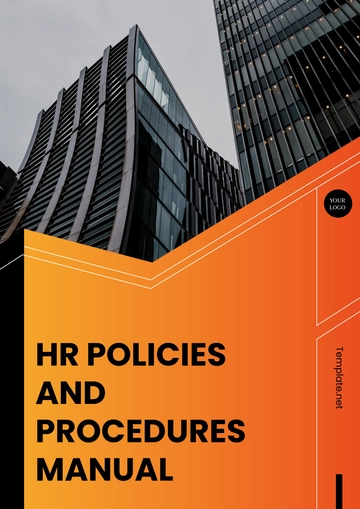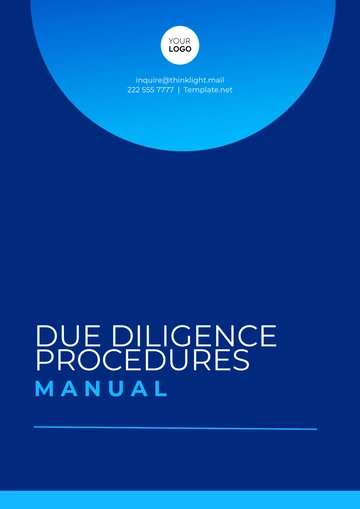Free Hotel Training Manual
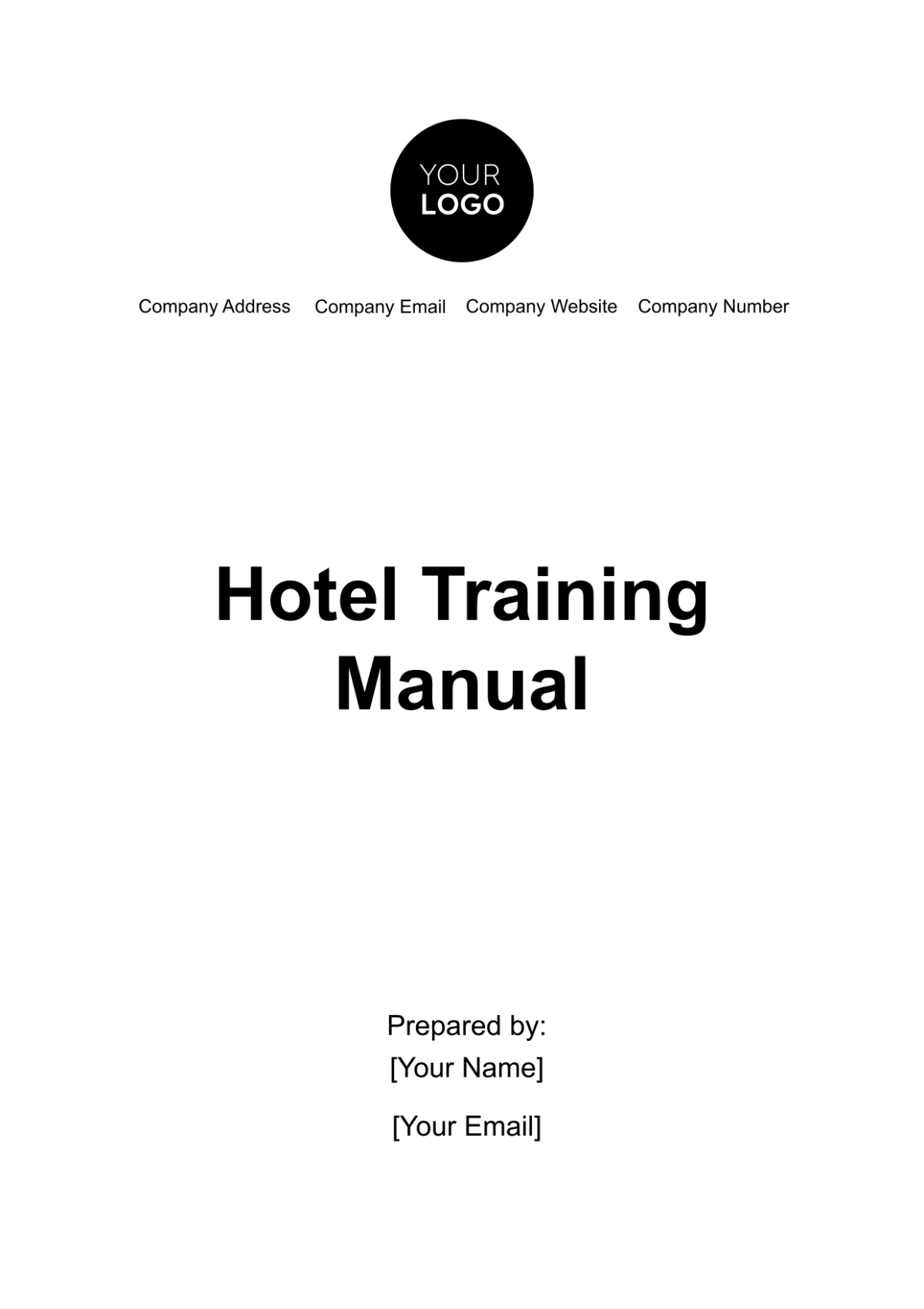
I. Introduction
This Training Manual is designed to provide comprehensive guidance for all staff members at [Your Company Name]. Our mission is to ensure that every employee understands their role, the standards of service expected, and the operational procedures of our hotel. This manual aims to enhance employee skills, promote a cohesive work environment, and ultimately deliver exceptional service to our guests.
A. Company Mission and Vision
Understanding the foundation of our hotel is essential for every employee. The mission and vision guide our actions and aspirations.
Mission Statement: To provide exceptional hospitality experiences by offering outstanding service and quality accommodations. We aim to exceed guest expectations and create memorable experiences.
Vision Statement: To be the leading hotel in the region, recognized for our commitment to guest satisfaction and sustainability. We strive for continuous improvement and innovation in our services.
B. Hotel Policies
Adhering to established policies ensures consistency and professionalism throughout our operations.
Code of Conduct: All employees are expected to conduct themselves in a professional manner that reflects the values of the hotel, fostering a positive work environment.
Uniform Policy: Staff must adhere to the uniform guidelines, maintaining a clean and polished appearance at all times, as it reflects our commitment to professionalism.
Confidentiality: Employees must respect guest privacy and confidentiality, following data protection regulations to ensure trust and safety.
II. Roles and Responsibilities
A. Front Desk Staff
The front desk is the face of the hotel; understanding your responsibilities is crucial for guest satisfaction.
Check-In/Check-Out Procedures: Familiarize with the check-in/check-out processes, including handling reservations and guest inquiries efficiently.
Guest Relations: Provide exceptional customer service by addressing guest needs and resolving issues promptly to enhance their experience.
Cash Handling: Understand cash register operations and ensure accurate financial transactions, maintaining integrity and accuracy.
B. Housekeeping Staff
Housekeeping plays a vital role in maintaining the hotel’s image and guest comfort.
Cleaning Standards: Follow the established cleaning protocols to maintain a high standard of cleanliness in guest rooms and public areas, ensuring a welcoming atmosphere.
Inventory Management: Report and manage supplies needed for cleaning and maintenance to ensure operational efficiency.
Safety Procedures: Understand safety and emergency procedures to ensure a safe environment for guests and staff, promoting well-being.
C. Food and Beverage Staff
The dining experience is integral to our guests' stay; understanding your role is essential for satisfaction.
Menu Knowledge: Be familiar with the menu offerings and be able to make recommendations to guests, enhancing their dining experience.
Service Standards: Follow proper serving techniques and etiquette to ensure a pleasant dining experience for guests.
Health and Safety Regulations: Adhere to food safety regulations and cleanliness standards in food preparation and service areas, safeguarding health.
III. Customer Service Training
A. Communication Skills
Effective communication is key to providing excellent service and ensuring guest satisfaction.
Active Listening: Practice active listening to understand guest needs effectively and respond appropriately, fostering trust.
Clear Communication: Use clear and concise language when communicating with guests and colleagues, preventing misunderstandings.
Conflict Resolution: Learn techniques to handle difficult situations and resolve guest complaints effectively, turning challenges into opportunities.
B. Guest Engagement
Engaging with guests on a personal level enhances their experience and builds loyalty.
Personalized Service: Strive to provide personalized experiences for guests by remembering their preferences and special occasions, making them feel valued.
Feedback Mechanism: Encourage guests to provide feedback and use it constructively to improve service, demonstrating our commitment to excellence.
IV. Health and Safety Procedures
A. Emergency Protocols
Being prepared for emergencies is essential for the safety of guests and staff.
Fire Safety: Familiarize with fire safety procedures, including evacuation routes and emergency exits, ensuring readiness.
First Aid Training: Staff should know basic first aid and CPR procedures to respond to emergencies effectively and confidently.
B. Sanitation Practices
Maintaining high standards of hygiene is crucial for guest safety and satisfaction.
Cleaning Procedures: Follow established sanitation protocols to ensure the health and safety of guests and staff, preventing health risks.
PPE Usage: Understand the importance of personal protective equipment (PPE) in maintaining safety standards, especially in food and cleaning areas.
V. Employee Development
A. Continuous Learning
Continuous learning ensures that our employees remain competitive and knowledgeable.
Training Workshops: Participate in regular training workshops to improve skills and knowledge relevant to your role, promoting personal and professional growth.
Cross-Training Opportunities: Engage in cross-training programs to understand different departments and enhance teamwork, fostering collaboration.
B. Performance Evaluation
Regular feedback and evaluations help employees identify strengths and areas for improvement.
Regular Feedback: Staff will receive constructive feedback on their performance and areas for improvement to guide their development.
Goal Setting: Collaborate with supervisors to set professional development goals and track progress, ensuring alignment with the hotel's objectives.
VI. Employee Engagement Programs
A. Recognition Programs
Recognizing employee efforts boosts morale and motivation within the team.
Employee of the Month: Recognize outstanding employees for their contributions to the team and guest satisfaction, fostering a culture of appreciation.
Incentive Programs: Implement incentive programs to motivate staff and promote exceptional service, encouraging high performance.
B. Team Building Activities
Team building fosters camaraderie and improves collaboration among staff.
Workshops and Retreats: Organize team-building workshops to strengthen relationships among staff and improve collaboration.
Social Events: Host social events to foster camaraderie and create a positive work environment, enhancing team spirit.
VII. Training Schedule
A structured training schedule ensures that all employees receive the necessary training to perform their roles effectively.
Training Program | Frequency | Duration | Target Audience |
|---|---|---|---|
Customer Service Skills | Monthly | 2 hours | All Employees |
Health and Safety Protocols | Quarterly | 3 hours | All Employees |
Department-Specific Training | Bi-Annually | 1-2 hours | Department Staff |
Leadership Development | Annually | 4 hours | Supervisors and Managers |
Emergency Response Training | Semi-Annually | 2 hours | All Employees |
This Training Manual serves as a comprehensive resource for all staff at [Your Company Name]. By adhering to the guidelines and actively participating in training programs, employees will contribute to a positive workplace culture and enhance guest experiences. Continuous improvement and commitment to excellence are the foundations of our success.
- 100% Customizable, free editor
- Access 1 Million+ Templates, photo’s & graphics
- Download or share as a template
- Click and replace photos, graphics, text, backgrounds
- Resize, crop, AI write & more
- Access advanced editor
Enhance staff efficiency with the Hotel Training Manual Template from Template.net. This editable and customizable template allows you to create comprehensive training materials for your hotel staff. Use our Ai Editor Tool to adjust the content, format, and sections, ensuring the manual is tailored to your hotel’s training needs.
